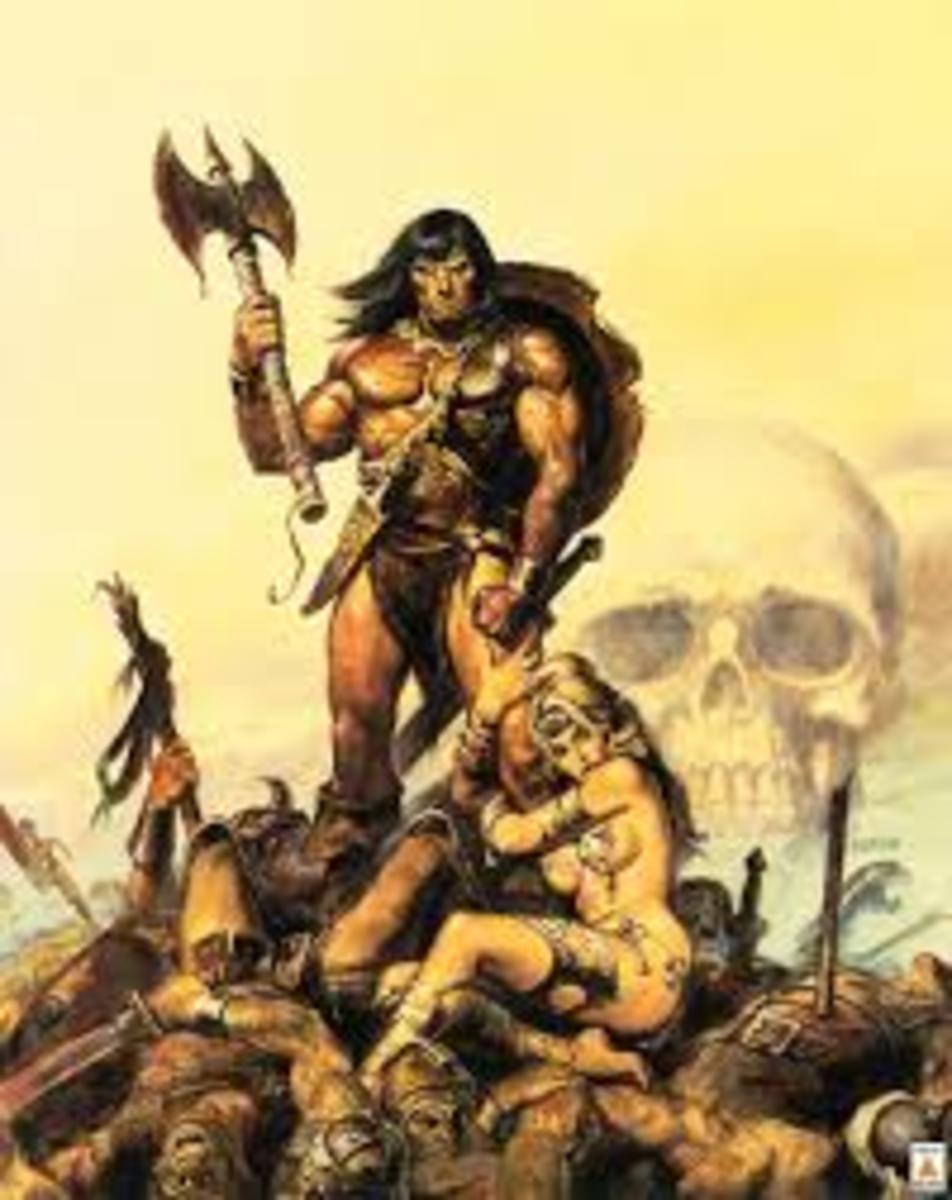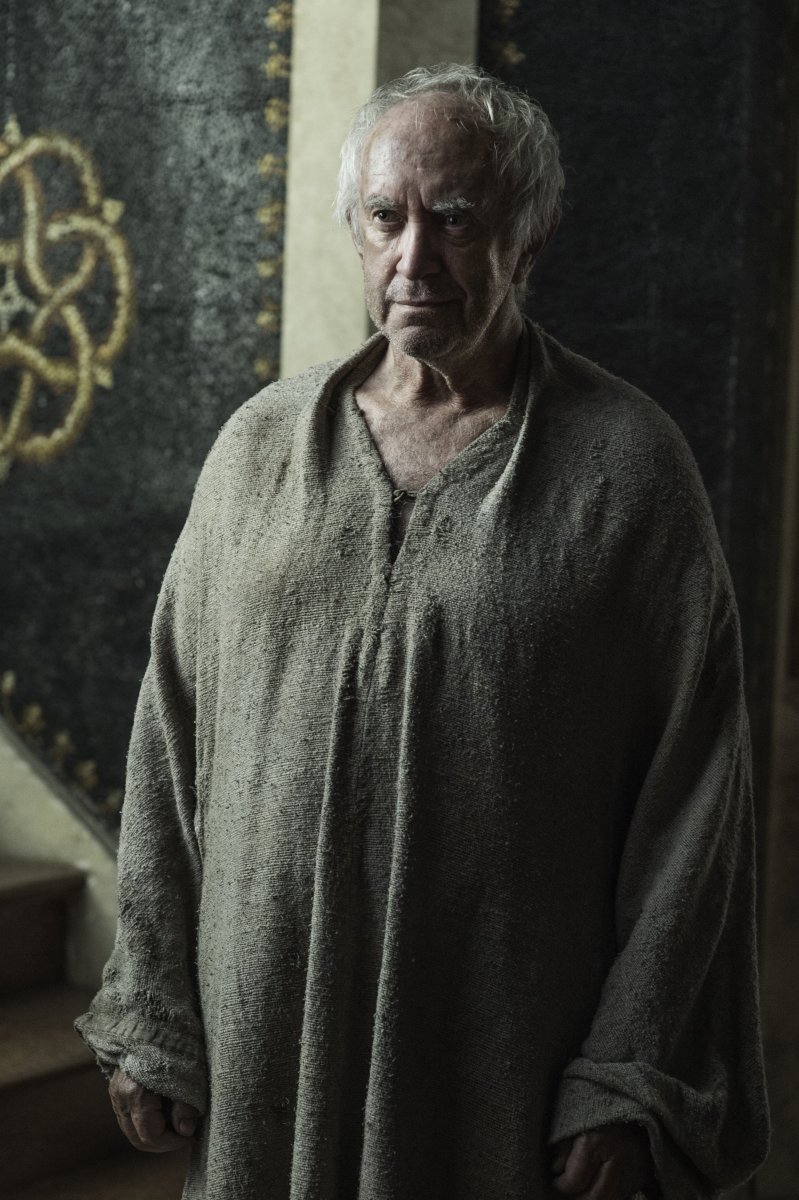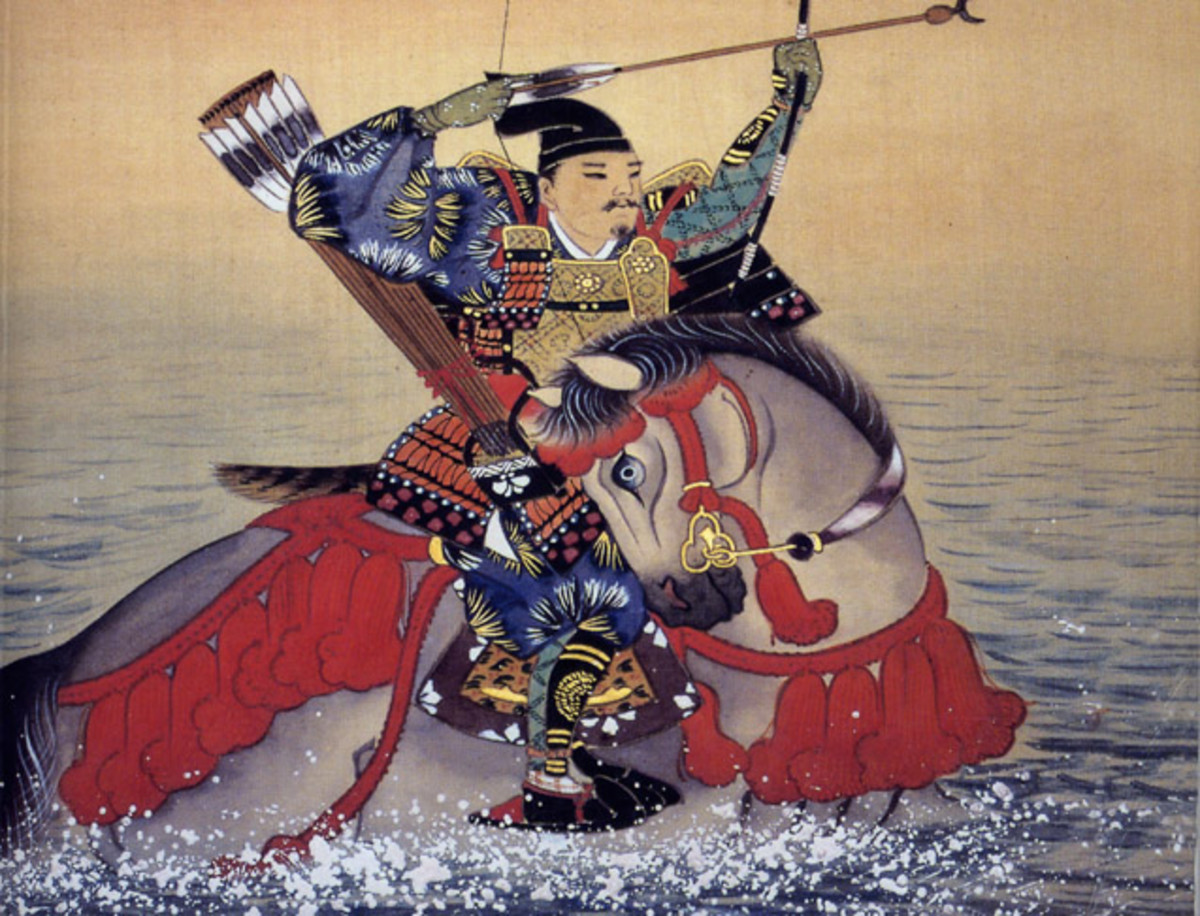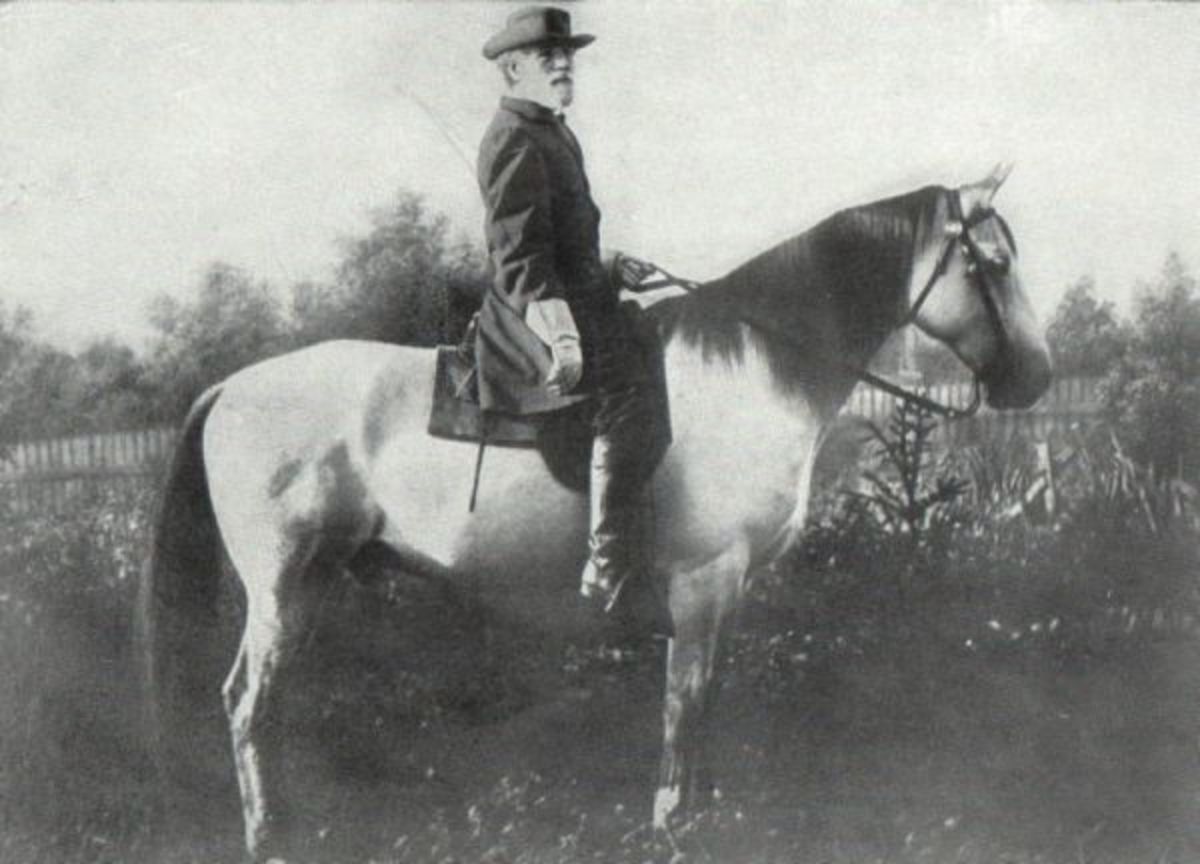General Robert E. Lee and Charles Ingalls: A Comparison of Historical Figures
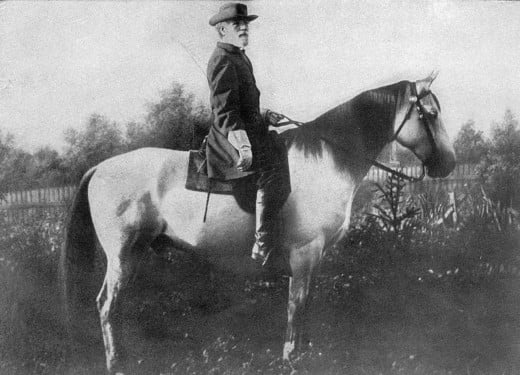
General Robert E. Lee and Charles Ingalls were two influential Americans from the 19th Century. They aren't two people you'll often see discussed together, but the similarities in their character were built on the same foundation.
Lee was born in Virginia, and considered himself a Virginian his entire life. Ingalls, on the other hand, was born in New York, and considered the land he lived on as a gift from God - a loan from Nature.
What makes these two historical figures similar is their faith. The Christian faith they embraced would govern each man's life. Neither made any serious decisions without first seeking council from their Maker. Though Ingalls was born thirty years after Lee, their ideals were developed in a similar time period - a period of change.
The United States was growing and changing rapidly during the 19th Century. While the 20th Century saw amazing advancements in technology, the previous century was a time of nation building. The US was still young, and relied heavily on its men and women of great character to guide it safely into the next century.
Men of Great Character
Lee and Ingalls were able to flourish in their roles; Lee, the Southern general, and Ingalls, the frontiersman. They are noted historical figures because of what they accomplished in their lives. Yet, they are beloved historical figures because of the men they were. Here is the essence of the difference between what one does in life, and what sort of person one is.
Both men instantly gained the respect of any who spent time with them. They went about their daily routines in a very similar manner, both believing that through their hard work, they would please God. It was this conviction that enabled both men to accomplish so much each day of their lives. Sundays were left to worshiping God, and the other six days were left to doing His work.
It's interesting to note, and the same can be said of many dignified people today, that these two men weren't clergy. They hadn't spent their entire lives buried in books or studying. Lee was an educated man, but his reason for educating himself was to become a great leader. At a very early age, he had his eyes on a military career. He developed his discipline by adhering strictly to the tenets set forth in the Bible.
Ingalls was the same. He believed that God would provide for he and his family, and he went with them into wild, untamed territory with nothing but a hunting rifle. His beliefs, and Lee's, were so strong that God was without fault, even when each man faced dark times.
Because they were such devout and humble Christians, God was blameless in all things. Whatever went wrong, went wrong because of God's divine will, and no other reason. Having such faith in the course of life lent each man the strength to carry on, and carry on with honor and dignity, through the considerable hardships both men endured in their lives.
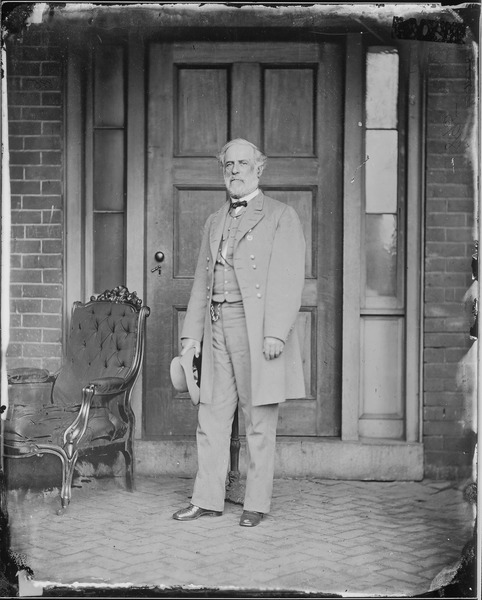
General Robert E. Lee's Devotion
There were many great generals that came before Lee. General George Washington was his role model, in fact. Washington and Lee were a different sort of general, more modern commanders. They understood what it meant to live up to the ideals one demanded of the men they commanded. They were both true role models. They brought with them a certain humble charisma, and the American public noticed.
Lee believed that life was to be lived in service to God. He attended church zealously, he instilled his beliefs on thousands of young men, and he lived his life in accordance with those beliefs. Though he fought for the South, in their cause to fight off abolition of slavery, he considered it his duty to defend his homeland, Virginia. He did believe that state was loved by God, and therefore, he loved it, too. He steadfastly refused command of the Union Army during America's Civil War, and went home to command Virginia's army, instead.
He believed that one should do as they say, that people ought to live their lives with purpose, and that one's cause should revolve around doing God's will. For non-Christians, Lee is probably a hard man to understand. He loved the strategic, tactical, and patriotic facets of war, but grieved at the realities of fighting one. Though certainly contrary to Christian beliefs of peace and love, he sought to be in battle. He believed the Union and Confederate causes he upheld by force were worth fighting for. And he felt it was his duty to serve, to the best of his ability, the armies he commanded, his homeland, and God.
He was a man set in the ways of the Bible, a man with unyielding character, who could be found praying humbly with the lowest soldiers one moment, or changing his battle plans at the urging of a junior officer, who spotted some flaw Lee hadn't. He was a listener and showed general concern for the plight of others. He was a leader, leading his men by example, insisting on enduring the hardships they endured, and they loved him for it.
Robert E. Lee devoted his life to aiding other people. He spent a good deal of his life learning the finer points of war, but he spent more time learning the finer points of being a caring and genuine human being.
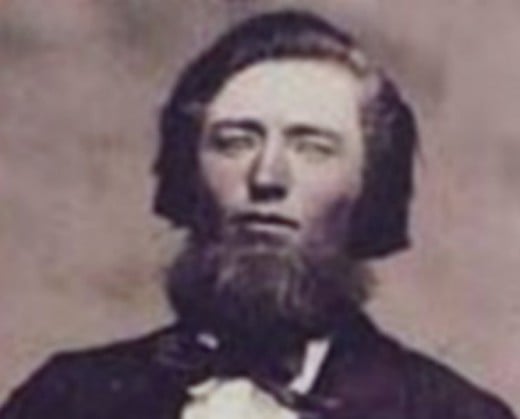
The Dedication of Charles Ingalls
The American public learned of Charles Ingalls through the writings of his daughter, Laura Ingalls Wilder, and from watching the television series, Little House on the Praire. Both are fine examples of the man Mr. Ingalls was. In the days of American frontier expansion, Ingalls was at the fore, setting down roots in Minnesota, Kansas's Indian Territory, and South Dakota. Traveling in a covered wagon and living off the land along the way, Charles and his wife, Caroline lived and raised a family where many lacked the fortitude to do so.
Charles raised his four daughters in a difficult environment, and at times, he did so at great risk to himself. He settled on Indian lands, battled bears and wolves, and still managed to build a solid home for himself and his family. He bonded with his neighbors, even with those who weren't as devout as himself, and aided any who needed help. He was a selfless man, learning from the Bible that service to man is a required trait of one in service to God.
His daughter's Little House stories are beautiful adventures that come with easy to understand lessons. Laura wrote about her father throughout, and she stressed how important he thought it that she, and her siblings, obey him without question. They were perhaps too young to understand why, but their very lives depended on it. If he told them not to wander too far outside the log house, and they didn't obey and wandered off, there were wild animals that could harm them.
The Ingalls children learned a Christian lesson different than most learn today. Because of the dangerous and wild environments they were raised in, they learned first and foremost, that disobeying their parents was akin to disobeying God. Laura wrote how they knew when they were doing something bad, because their parents had been so dutiful in their parenting. She told how Mary, her sister, was such a good girl, because she always obeyed her parents, and how she wanted to be more like her.
Like Lee, Charles Ingalls believed that doing one's duty was a fundamental Christian belief. There was time for fun in the Ingalls household, but the majority of the time spent there was in doing one's work. He led his family by example, going to extremes to provide for them, as depicted in the novel Little House on the Praire. He braved winter nights, storms, and the potentially dangerous Native Americans, who he'd learned to co-exist with, until the time came when the US government forced all settlers in that part of the Kansas Territory to relocate.
He had spent all of himself in building that Little House in Kansas. A lesser man, men of less faith, would have been devastated at the news from the Union Army to leave. He'd cleared land, wrestled with tree stumps, and planted crops. He'd appeased the few Indians who'd dropped by, to the point where they seemed to enjoy his company - no small feat in those uncertain times.
Ingalls was a likable man because he lived his life in service to others. His family, his neighbors, and later, the communities he lived in, all benefited from knowing Charles Ingalls. They knew, without a shadow of a doubt, that here was an uncompromising and fair man, a man to be trusted, and a man who would drop everything to help them if they needed it.
Living Lives that Teach
There are lessons in excellent lives lived. Robert E. Lee and Charles Ingalls were two men who led very different lives. Lee was the heroic Civil War general, who was mobbed by those wanting to thank him and wish him well everywhere he went in the South, after the war. Charles Ingalls was a nomad, an adventurer, and without men like him, the United States wouldn't have flourished the way it did. Men like Ingalls were pioneers, explorers that dared to settle in places decidedly uncivilized. The land was harsh and unforgiving, as noted by history in the tales of the many who perished trying to make it in the new frontier.
Beneath their lives are their makeup. Their makeups are what drove them to live the lives they led. It's what caused them to care, and care for, those they loved. It's what caused Ingalls to teach his two elder daughters that it was best that they go without, if it meant their little sister having something she wanted or needed. It's what caused Lee to instill in his men, both on the battlefield and at college, that what makes a man heroic isn't his bravery alone, but his bravery tempered with a lack of fear brought on by complete faith in God, and the causes they would choose to champion throughout their lives.
Whether reviewed as a Christian, or not, these two men's lives leave an important advisory. How important it is that children have values instilled in them that will allow them to lead productive lives.
This isn't an opinion piece, but in the 21st Century, America has struggled to impress upon its children the importance of discipline, diligence, humility, and love and charity for their fellow man. It would be a shame if we let slip the ways where men lived quiet lives that spoke volumes. It's important to note that these two men, who most consider great, were men who never sought a place on the center stage. They just ended up there, loved by many, because of their character.



